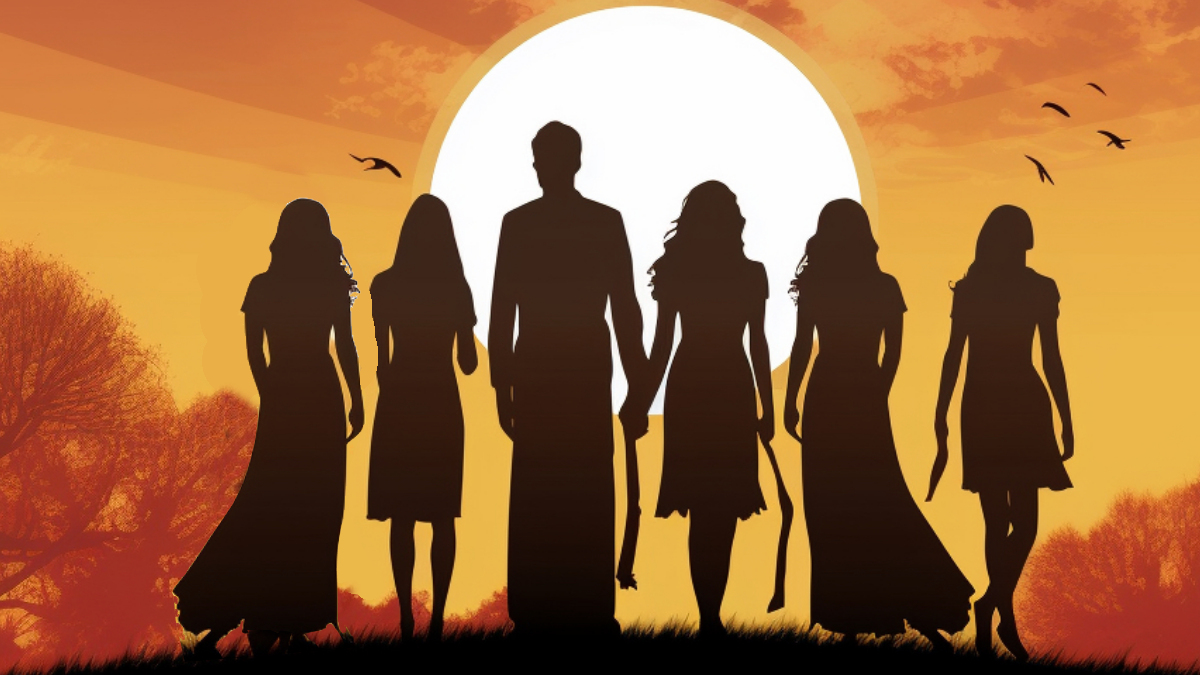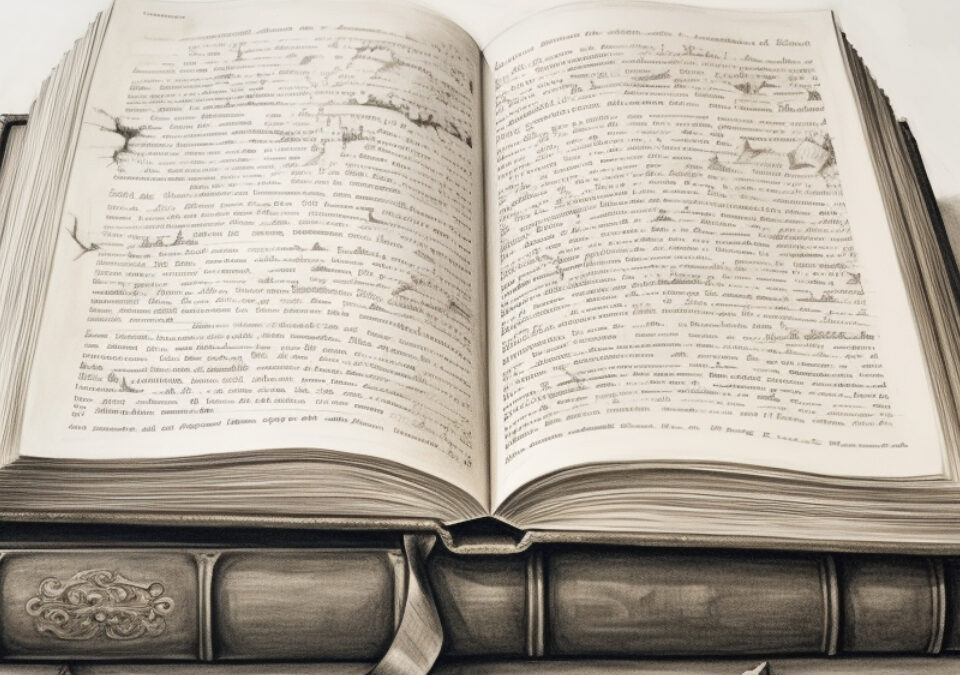
22. Joseph said Whatever God Commands is Right
September 14, 2024
20. Joseph had Nauvoo Expositor Torn Down
September 17, 2024Joseph would not allow Emma to have her endowments or get sealed to him, essentially damning her, until she accepted polygamy.
Table of contents
- Joseph would not allow Emma to have her endowments or get sealed to him, essentially damning her, until she accepted polygamy.
- A1) Over twenty other women were sealed to Joseph Smith before Emma.
- A2) Joseph pretended a plural marriage with the Partridge Sisters while Emma was unaware that Joseph had already married those sisters earlier without her knowledge.
- A3) Emma’s agreement to plural marriage was short-lived and contingent that she be taken care of financially regardless of what happened to Joseph.
- A4) Joseph taught Emma she could not have her endowment until she agreed to plural marriage, essentially damning her in her spiritual progress unless she relented.
- Issues these Facts Raise
- Questions these Facts Raise
A1) Over twenty other women were sealed to Joseph Smith before Emma.
Supporting Sources and Quotes
“The only solid dating for when Emma undeniably knew of Joseph’s plural marriage teachings is May of 1843. That month, Emma Smith participated in Joseph’s marriages to four plural brides, Eliza and Emily Partridge and Sarah and Maria Lawrence.” - Brian Hales Joseph Smith Polygamy Website
A2) Joseph pretended a plural marriage with the Partridge Sisters while Emma was unaware that Joseph had already married those sisters earlier without her knowledge.
Supporting Sources and Quotes
When Emma finally did accept (for a very short time), she picked out two sisters (Partridge Sisters) and watched as Joseph married them in front of her. Little did she know that Joseph had already married them months ago and the whole ceremony was a sham in order for Joseph to not admit that he’d already married them. Not long after getting her endowment and being sealed to Joseph, Emma kicked the sisters out of the home and made sure they never saw Joseph privately again.
“Emily Partridge testified concerning Emma’s immediate reaction: “She [Emma] consented to [the marriage] at the time … [then] she was bitter after that. … After the next day you might say that she was bitter.”” - Quoted from Brian Hales Joseph Smith Polygamy Website, Quoting Emily Dow Partridge Young, Deposition, Temple Lot Transcript, Respondent’s Testimony, part 3, pages 365–66, questions 346-51.
A3) Emma’s agreement to plural marriage was short-lived and contingent that she be taken care of financially regardless of what happened to Joseph.
Supporting Sources and Quotes
Part of Emma’s short-lived approval of polygamy was contingent on a contractual agreement that she would be taken care of financially regardless of what happened to Joseph. Joseph’s personal secretary William Clayton recorded that only hours after Emma initially rejected the polygamy revelation:
“[July 12, 1843. Wednesday.] This A.M. I wrote a Revelation consisting of 10 pages on the order of the priesthood, showing the designs in Moses, Abraham, David and Solomon having many wives and concubines &c.*? After it was wrote Presidents Joseph and Hyrum presented it and read it to E[mma] who said she did not believe a word of it and appeared very rebellious. Joseph told me to Deed all the unincumbered lots to E[mma] and the chil-dren. He appears much troubled about E[mma].” - An Intimate Chronicle: The Journals of William Clayton, Page 110.
Three days later, Clayton recorded: “Made Deed for 1/2 Steam Boat Maid of Iowa from Joseph to Emma. Also a Deed to Emma for over 60 city lots”(The Journals of William Clayton, Signature Books, 1995).
William Law remembered that Emma confided to him in a conversation that probably occurred in the fall of 1843, “Joe and I have settled our troubles on the basis of equal rights.” (The Law Interview, The Daily Tribune: Salt Lake City, July 31, 1887). After this exchange, Emma finally gave Joseph permission to marry the Partridge girls, unaware that he was already married to them. She was also finally permitted to get her own temple endowment
A4) Joseph taught Emma she could not have her endowment until she agreed to plural marriage, essentially damning her in her spiritual progress unless she relented.
Supporting Sources and Quotes
“Until Emma could be obedient to Joseph and give him plural wives, she could not participate in the endowment ceremonies, yet he taught her that the endowment was essential for exaltation–as opposed to salvation, which Joseph taught was available to all through the atonement of Christ. Joseph wanted Emma to serve as the example, the Elect Lady, the ‘disseminator of the endowment blessing,’ to other women. Thus her rejection of plural marriage would have blocked her admittance into the Endowment Council, because she had not obeyed her husband, and therefore prevented other women from entering as well.”
- Mormon Enigma: Emma Hale Smith, p. 140
“For two months, from March to May, Joseph appears to have talked with Emma about plural marriage. he apparently used their rides together to teach her the necessity of the endowment and sealing. There is no evidence that she ever opposed him on any doctrine but plural marriage. Convinced that it was necessary for her salvation and essential to their continued relationship, she may have decided to compromise with Joseph. In May 1843 she finally agreed to give Joseph other wives if she could choose them. Any of Joseph’s other wives, who by now numbered at least sixteen, would have been more comfortable if they had had Emma’s approval. Emma chose the two sets of sister then living in her house, Emily and Eliza Partridge and Sarah and Maria Lawrence. Joseph had finally converted Emma to plural marriage, but not so fully that he dared tell her he had married the Partridge sisters two months earlier.
- Mormon Enigma: Emma Hale Smith, p. 143
"After being involved in the construction and design of the garments, the building of the temple, and hearing about their place in the endowment in the Relief Society (by Smith), why had women not been admitted to the Endowment? Joseph taught that a man must obey God to be worthy of the endowment and that a wife must obey a righteous husband to merit the same reward. Until Emma could be obedient to Joseph (see D&C; Sec. 132) and give him plural wives, she could not participate in the endowment ceremonies, yet Smith taught her that the endowment was essential for exaltation."
- Mormon Enigma: Emma Hale Smith, p. 140
Issues these Facts Raise
This is the reverse of Joseph promising salvation. Here he is damning his wife. Not saying this isn’t against anything doctrinal, but in my opinion it feels like a poor way to treat his wife (by Joseph and by God).
The account of Joseph Smith marrying the Partridge sisters without Emma’s knowledge, then orchestrating a second ceremony in front of her to avoid telling the truth, raises serious ethical concerns. If Joseph was a prophet of God, why would he need to deceive his wife about something so central to their marriage and to the early church's doctrine? This could lead to questions about the integrity of Joseph Smith's character and the trustworthiness of his prophetic role.
The situation described reflects a power imbalance where Joseph Smith, as both a husband and a prophet, held significant control over Emma's spiritual progress. This raises broader concerns about gender dynamics within the early church and LDS doctrine. Why was Emma’s spiritual salvation contingent on her compliance with Joseph’s wishes?
Emma was called the “Elect Lady” in the church, yet her spiritual progress was blocked until she complied with Joseph's polygamous demands. This contradiction leads me to question the role of women in LDS theology and whether women in the early church were truly valued as spiritual equals or were used to serve the interests of the male leadership.
The idea that Emma could not receive her endowment unless she accepted polygamy introduces confusion about the doctrine of exaltation. If the endowment was taught to be essential for exaltation, why was it withheld from Emma unless she accepted plural marriage? This raises questions about the fairness and universality of God’s plan for salvation.
The fact that Joseph married over twenty women before Emma, combined with his pressure on her to accept plural marriage, could make it seem as though the revelation on polygamy was driven by Joseph’s personal desires rather than divine mandate.
Emma’s emotional distress and brief acceptance of polygamy under pressure suggest that she experienced significant emotional trauma as a result of Joseph’s actions. This raises concerns about the emotional and spiritual well-being of those involved in early church polygamy. If Emma was told that her eternal salvation and exaltation depended on her acceptance of something that caused her great distress, this could be seen as spiritual manipulation.
The portrayal of Emma Smith in these accounts contrasts sharply with her reverence as the "Elect Lady" and her contributions to the early church. The fact that she was pressured, deceived, and manipulated regarding polygamy could lead to questions of how women, particularly Emma, have been treated and remembered in church history. How does a member reconcile the church’s official narrative of Emma’s role with the historical realities of her marriage to Joseph and her resistance to polygamy?
Questions these Facts Raise
Why didn't Joseph get sealed to Emma first? After all, she was his first love, right? It seems odd to me that using her acceptance of plural marriage as a bargaining chip against her salvation seems wrong.
Why were there 20+ women sealed to Joseph Smith before Emma?
Was the fact that Joseph Smith withheld Emma's endowment until she accepted plural marriage spiritual coercion? If a sacred ordinance necessary for exaltation was conditional on accepting polygamy, is this manipulative, especially since polygamy is no longer required in modern LDS doctrine? Were Joseph’s teachings and revelations motivated by divine inspiration or personal desires?
Was Emma Smith treated fairly by Joseph and the early church, or was she coerced into accepting something she fundamentally disagreed with? What does this say about the nature of spiritual authority and obedience in the church?



